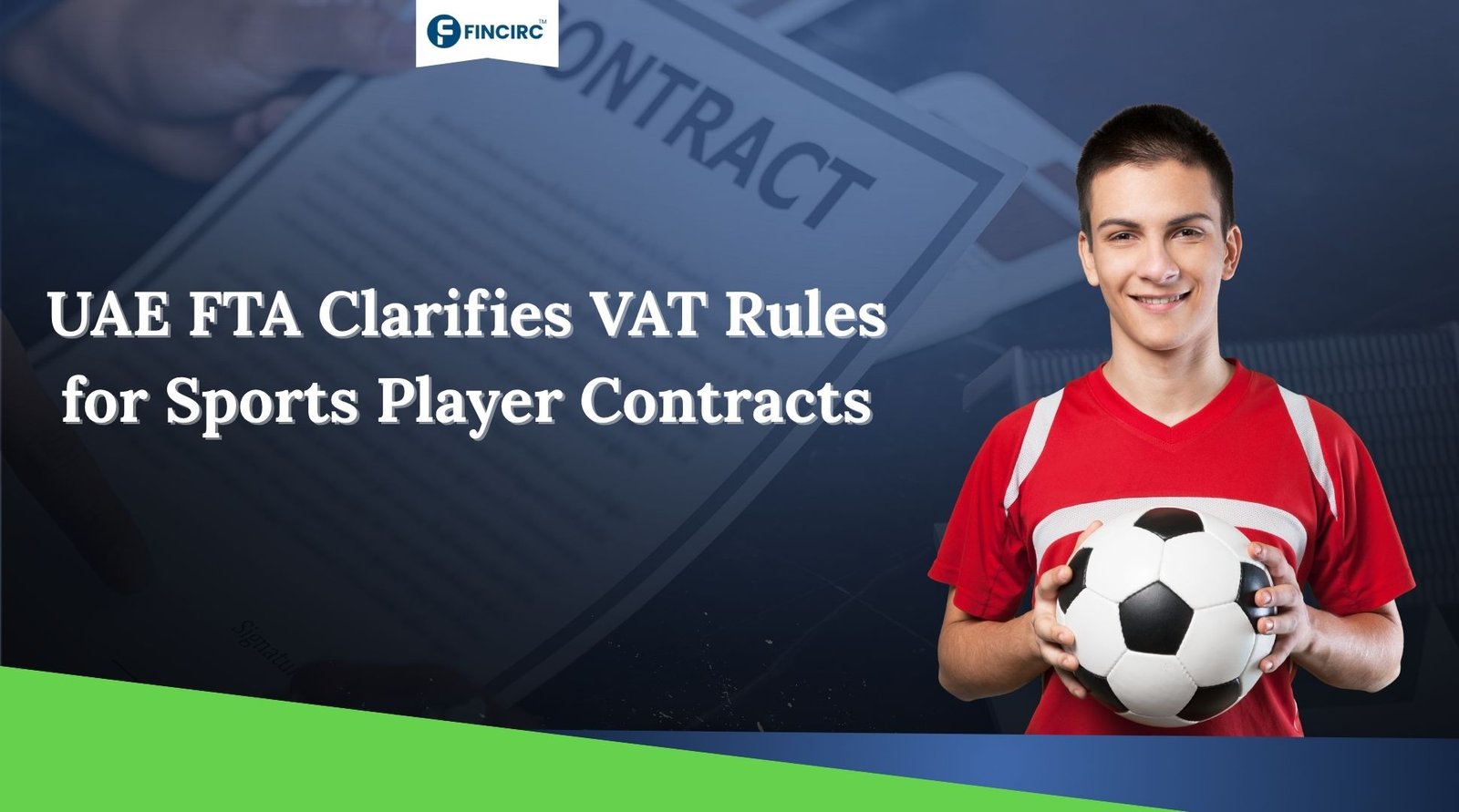UAE FTA Clarifies VAT Rules for Sports Player Contracts
The Federal Tax Authority (FTA) of the UAE has issued crucial guidance regarding the imposition of the 5% Value Added Tax (VAT) on contracts of professional players. The taxation differs in accordance with the type of contract, thus drawing significant distinctions between clubs, agents, and players. This clarification helps ensure compliance in a growing sports industry, where transactions can reach significant sums.
Contract Structure Determines VAT Liability
According to the FTA, VAT applicability is not uniform across all player deals but is evaluated on a case-by-case basis:
- Employment Contracts: When a sportsperson is employed, their salary, bonuses, and other allowances are exempt fully from VAT. This is in keeping with normal VAT rules on employer-employee relations, considering such payments as non-taxable remuneration and not as supplies of goods or services.
- Service-Based Contracts: If the agreement is to a player offering specific services—e.g., endorsement contracts, guest appearances, or short-term consulting—it is treated as a taxable supply. The 5% VAT rate in such instances applies on the fee charged.

Implications for the Sports Sector
This sophisticated strategy affects tax strategy and financial reporting in sport. The clubs and organizations should pay close attention while drafting contracts to classify them correctly, lest VAT obligations pop up unexpectedly and add 5% to costs. For example:
- (a) Agent fees, image rights contracts, and player transfers will subject to VAT if designed as service arrangements.
- (b) Misclassification could lead to penalties, audits, or disputes during FTA reviews.
The ruling is particularly relevant amid rising investment in UAE sports. During the 2024–2025 UAE Pro League winter transfer window, clubs spent approximately AED 141 million on football player acquisitions. While core transfer fees between clubs are generally outside VAT scope (as they involve asset sales rather than services), any ancillary service elements—like negotiation or scouting fees—could be taxable.
Aspect | VAT Treatment | Examples |
Employment Salary | Exempt | Monthly wages, performance bonuses |
Service Fees | 5% VAT Applicable | Endorsements, one-off appearances |
Transfer Fees | Generally Exempt (if pure sale) | Club-to-club player sales |
Agent Commissions | Taxable if service-based | Percentage of transfer value |
Broader Business and Compliance Impact
Sports organizations are now under increased scrutiny in contractual documentation. Tax consultants suggest that clear relationship type clauses (employment vs. independent service) be included and precise records kept for FTA audits. This is to encourage transparency but increases administrative levels to transactions.
For the UAE’s vision to become a sporting destination on a global scale— evidenced by hosting events such as the FIFA Club World Cup and attracting international talent—the regulations guarantee a fair fight in tax matters. Tax-free zones or expatriate incentives must still navigate VAT on service elements.
In summary, the FTA’s guidance underscores the importance of precise contract design in avoiding VAT pitfalls. As the 2024–2025 season progresses, stakeholders in football and beyond should consult tax professionals to align with Federal Decree-Law No. 8 of 2017, minimizing risks in an increasingly lucrative market.

